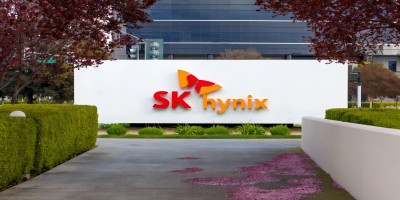Nexperia Semiconductor announced that the Ministry of Commerce of China has issued an export control announcement, prohibiting Nexperia Semiconductor's subsidiaries and subcontractors within the Chinese mainland from exporting specific finished components and assemblies.
In October 2025, Nexperia, a leading global power semiconductor company, was embroiled in regulatory disputes among China, the Netherlands and the United States, causing a shake-up in the global chip supply chain landscape. This incident not only exposed the geopolitical risks in the operations of multinational enterprises, but also reflected the complexity and sensitivity of global high-tech industry competition.
Asset control measures based on the Cold War legal framework
The incident originated from the administrative intervention of the Dutch government. On September 30th, the Ministry of Economic Affairs and Climate Policy of the Netherlands, in accordance with the Materials Supply Act formulated during the Cold War era, imposed asset freezes on 30 affiliated entities of Wingtech Technology worldwide, including Nexperia Semiconductor, prohibiting them from making asset structure adjustments, intellectual property transfers, and personnel allocation changes. The control period lasts for one year.
Within the following week, the Dutch Corporate court made three emergency rulings in succession: First, all management positions of Zhang Xuezheng, the founder of Wingtech Technology, at Nexperia Semiconductor were suspended; Secondly, the company's equity held by Hong Kong Yucheng Holdings will be temporarily entrusted to a third party for custody. Ultimately, by appointing independent foreign directors, the decisive voting rights on major matters of the company are obtained, essentially achieving long-term trusteeship of the core equity of the enterprise.
The Dutch government cited "corporate governance deficiencies" and "maintaining supply chain security" as administrative grounds, but this interpretation failed to dispel market doubts. As a core asset acquired by Wingtech Technology in 2019, Nexeon Semiconductor achieved operating revenue of 14.715 billion yuan in 2024, providing key power semiconductor products for many international well-known enterprises and maintaining a stable operation state for a long time.
It is worth noting that the timing of the Dutch government's action (September 30th) is related to the release of the new regulations on rare earth export control by the Ministry of Commerce of China (October 9th). This coincidence in time has sparked widespread speculation in international public opinion about the strategic intentions of the Dutch measures.
The chain reaction of cross-border regulation triggered by long-arm jurisdiction
The aggressive regulatory measures of the Dutch government have a significant correlation with the export control policies of the United States. In December 2024, Wingtech Technology was added to the Entity List of the US Department of Commerce. In September 2025, the Bureau of Industry and Security (BIS) of the US Department of Commerce issued the "Related Party Rule", expanding the scope of export control to subsidiaries of entities on the Entity List where the company holds more than 50% of the shares. As a wholly-owned subsidiary of Wingtech Technology, Nexperia Semiconductor was immediately subject to this rule, and its global supply chain system and technology procurement activities faced comprehensive restrictions.
This policy directly leads to internal decision-making differences within the enterprise. The chief legal officer of Nexperia Semiconductor, along with two senior executives, filed a lawsuit with the court, demanding that Wingtech Technology reduce its shareholding ratio to below 50% to circumvente US regulations, and received support from the Dutch judicial authorities. This move highlights the indirect influence of the United States on European regulatory policies through the "long-arm jurisdiction" mechanism, exacerbating the strategic choice dilemma of global semiconductor enterprises under the international rule system.
Precisely implement the response strategy for export control
Facing external regulatory pressure, the Ministry of Commerce of China promptly took countermeasures. On October 14th, Nexperia Semiconductor announced that on October 4th, 2025, the Ministry of Commerce of China issued an export control announcement, prohibiting Nexperia Semiconductor's subsidiaries and subcontractors within the Chinese mainland from exporting specific finished components and assemblies.
This measure precisely targets key links in the enterprise supply chain - Nexperia Semiconductor has an 80,000-square-meter packaging and assembly production base in Guangdong, among which domestic energy holds an important position in the global supply chain system. The implementation of the export ban has directly weakened the actual effect of the Dutch government's policy of "ensuring supply chain security".
Wingtech Technology's semi-annual report shows that in the first half of this year, the revenue from China accounted for 48% of Nexperia Semiconductor's total, approaching half.
Nexperia Semiconductor immediately activated its crisis response mechanism, stating that it would fully communicate with Chinese government departments to strive for exemptions and simultaneously coordinate with multiple governments to mitigate the impact of policies. The capital market reacted strongly to this incident. Since October 10th, there have been phenomena such as market panic buying and suspension of quotations for related products of Nexperia Semiconductor. The stock of Wingtech Technology hit the daily limit down on its first trading day after resuming trading on October 13th, with its market value shrinking significantly.
The realistic challenges faced by multiple stakeholders
This incident has triggered a chain reaction throughout the global semiconductor industry chain. For the European market, as a core component supplier in the automotive electronics and consumer electronics sectors, Nexperia Semiconductor may face the risk of chip supply disruptions due to the dual impact of equity trusteeship and export bans.
For Chinese enterprises, this is another major regulatory challenge that Chinese technology companies have encountered overseas following the UK government's mandatory requirement for Nexperia Semiconductor to divest its UK business in 2022. The intervention of the Dutch government has set a bad precedent for European countries to interfere in the assets of Chinese enterprises under the pretext of "supply chain security".
At present, the equity trusteeship process of Nexperia Semiconductor is still ongoing, the trade negotiations between China and the United States are about to resume, and the global semiconductor industry competition continues. Against the backdrop of key industrial links such as rare earth resources, lithography machine technology, and power semiconductors increasingly becoming chips in geopolitical games, promoting the "depoliticization" of the global semiconductor supply chain has become a consensus and an urgent need in the industry.
Disclaimer: The article is sourced from the Internet. In case of any dispute, please contact customer service.



